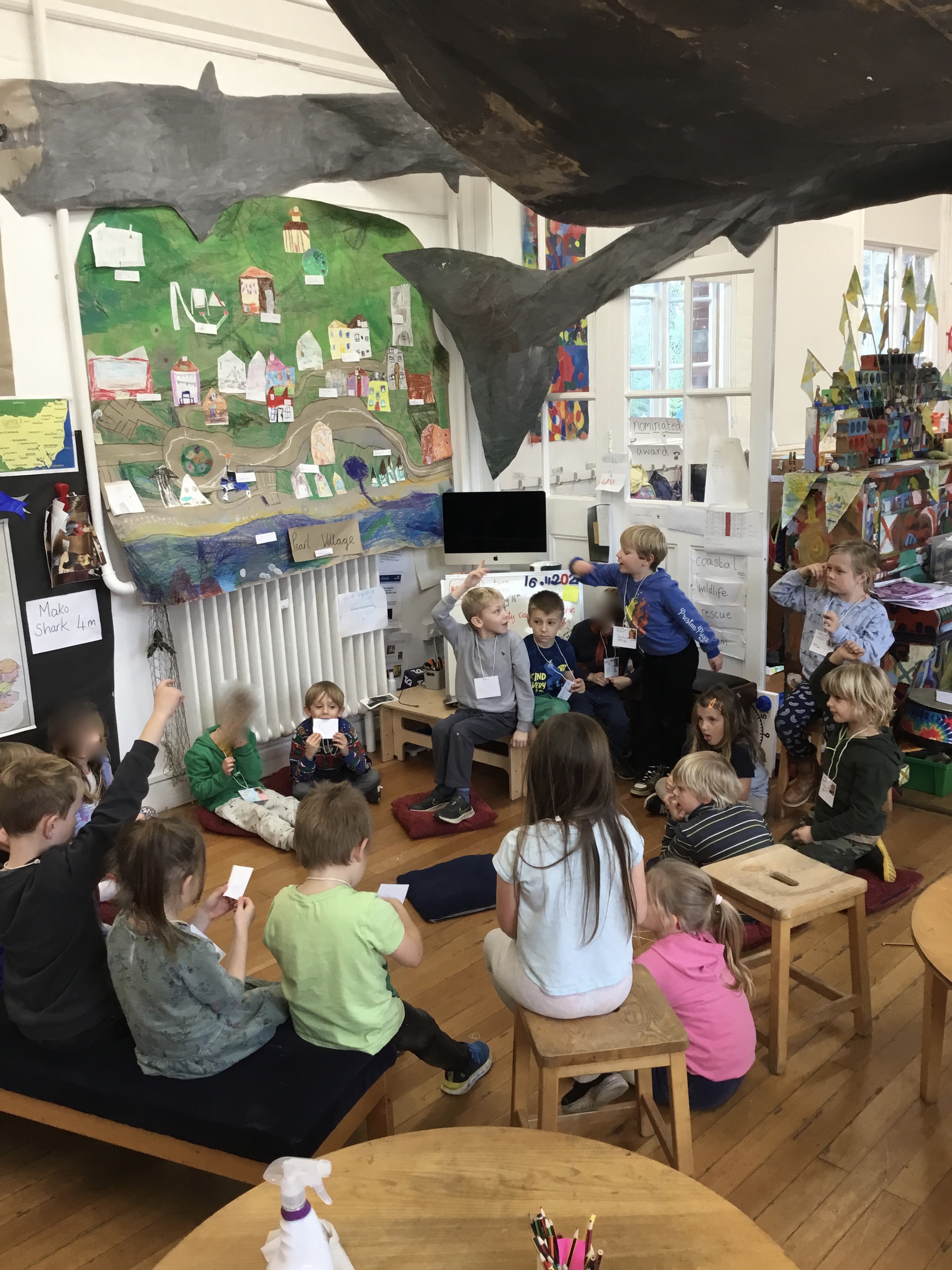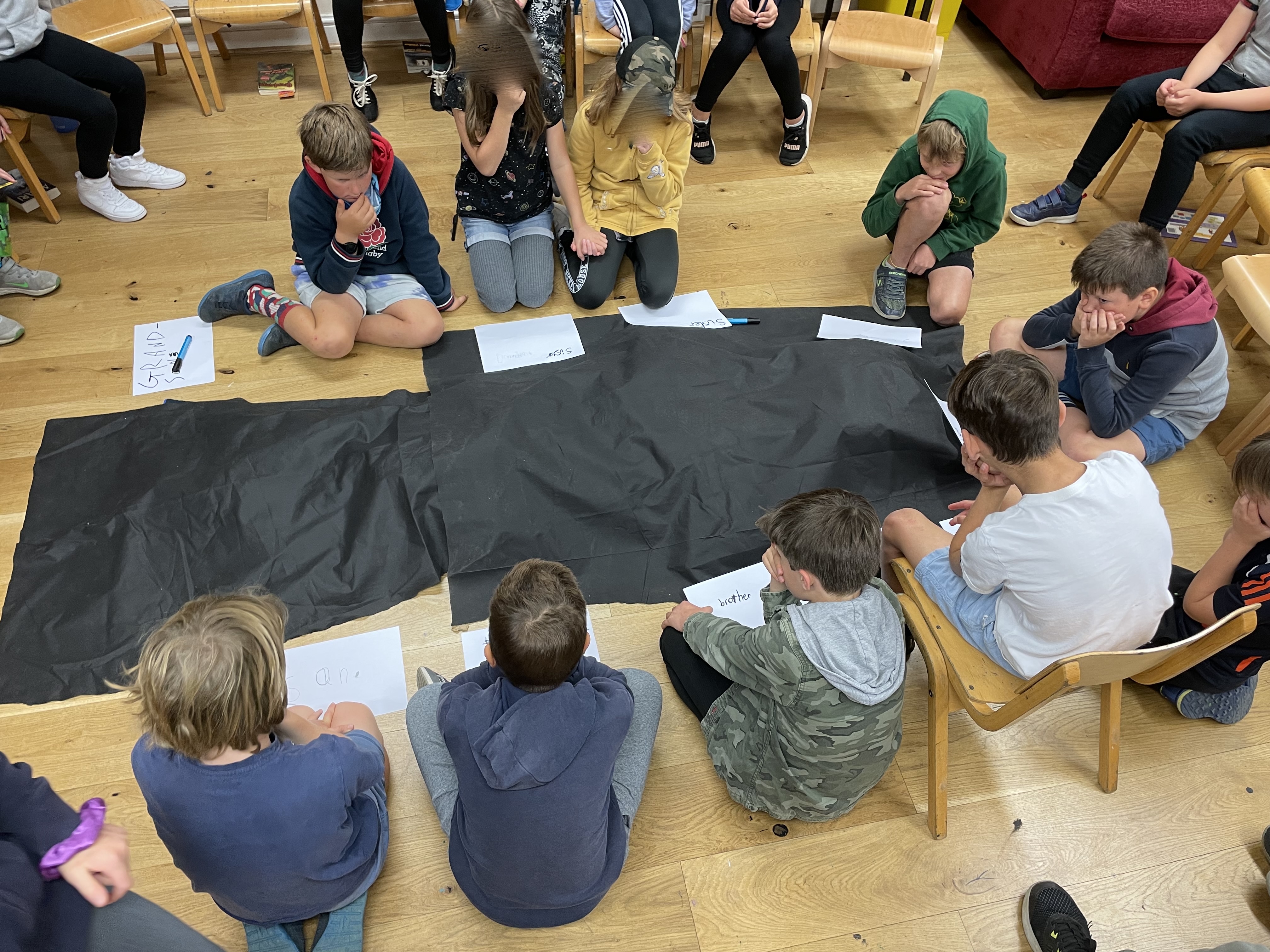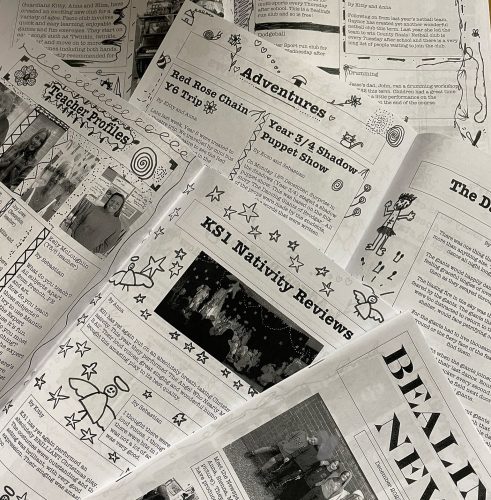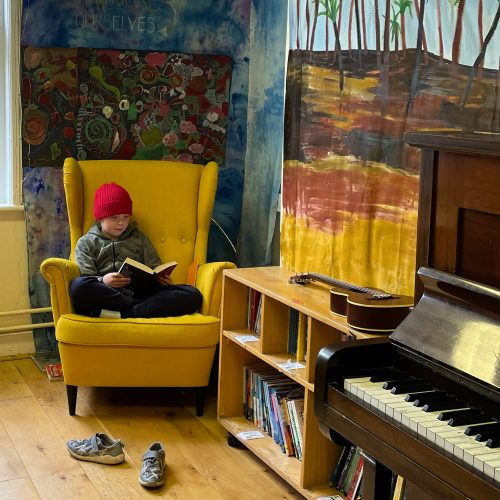 English is alive for us! An evolving language, spoken, listened to, written and read in many forms, dialects and cultures and our community of creators here at Bealings are busy enjoying exploring it and becoming increasingly sophisticated in using it to express themselves in spoken and written forms!
English is alive for us! An evolving language, spoken, listened to, written and read in many forms, dialects and cultures and our community of creators here at Bealings are busy enjoying exploring it and becoming increasingly sophisticated in using it to express themselves in spoken and written forms!
There is so much everyone has to say! And so much to listen to!
In the School Meeting, which takes place once a week, all the children and adults in our school come together to discuss important issues which they wish to raise. It’s chaired by a member of Y6 and a secretary from Y6 minutes the meeting.
In this meeting where we discuss school matters, the children and adults raise all sorts of questions, proposals, improvements, settle disputes, and finish with votes of thanks. Speaking and listening skills are developed and honed and everybody has a voice, from the 4 year olds to the 11 year olds! There is much to discuss and much to listen to if we are to make a meaningful contribution!
An extremely powerful way of developing speaking and listening skills comes through the deeply contextualised in-role and out-of-role experiences of our our mantle of the expert work. Here, often standing in the shoes of others, using dramatic conventions, speaking and listening skills are heightened as we are required to use different tone, inflection and language for different audiences.
 For example, at the Saxon burial ceremony, formal, a deeply respectful tone and words were used, in contrast to the exaggerated, impassioned hyperbole of the school football reporter!
For example, at the Saxon burial ceremony, formal, a deeply respectful tone and words were used, in contrast to the exaggerated, impassioned hyperbole of the school football reporter!
Passionate discussions, exclamations, questions and sharing of discoveries, instructions and explanations between children and adults are a feature of our busy learning spaces! Intense listening, silence in a meeting or activity, as everyone concentrates to what another has to say and processes it, is also a constant feature of life at Bealings – a dynamic forum!
At Bealings we have long-standing links with some of the greatest living storytellers : Hugh Lupton, Tuup, Rory McLeod and many others, who enthral and empower the children ( and adults) as we become immersed in another dimension of living language, time standing still, transported by the power of the telling, by turns laughing then quietly reflecting and finally changed, learning about ourselves and the ways of the world along the way!
And… the craft of storytelling!
The children live and learn in a richly literate environment. There are many ways in which we learn to read at Bealings: enjoying and sharing stories read by an adult or an older child; reading signs, names, and words which the children ask for and use in working in their fictional organisation, contextualised words, and other important key words and taking books home every day – perhaps with only pictures to begin with, but still behaving as readers- to read with other family members. Parents are also encouraged to read to their children every evening – there’s nothing like a bedtime story! Or a story told!
Phonetic knowledge is taught both within the text and through the DfE approved Jolly Phonics scheme.
Our research-based practice and links with our partner schools here and in Denmark and Reggio Emilia shows that as the children grow to love being read to, love being able to read words and “ catch on to reading” their ability grows quickly. This isn’t the same day for everyone, but as we move through the school we see confident readers enjoying their growing powers and through KS2 children reading much more complex books and novels.
Writing takes many forms and begins with emergent writing in the Early Years class. The children have much to say and it’s extremely exciting and empowering to be able to write it and also that other people can read it!
As reading develops and the language of the texts become more sophisticated, so the children’s written language grows in quality.
There are many different forms of writing which are required through the rich context and needs of the fictional organisation for whom the children work and the dramatic conventions where the children stand in the shoes of others: letters, emails, reports, recounts, accounts, journal entries, poems, notes, drafts, notices, demands, newspaper reports, song lyrics and so much more!
All vital in the context of the work of the organisation!
 Tensions of danger, time ( deadlines), interception of a letter, discovery of a lost diary, instructions etc – all are powerful motivators and we are eagerly writing! Grammar and spelling is taught in context as much as possible, relating to the task at hand.
Tensions of danger, time ( deadlines), interception of a letter, discovery of a lost diary, instructions etc – all are powerful motivators and we are eagerly writing! Grammar and spelling is taught in context as much as possible, relating to the task at hand.
Our learning environment is literature-rich and the walls of the classroom become an extra “skin” of learning : interactive, co-constructed with the children as members of a fictional organisation and another record of their work investigating various mysteries, following leads, experiencing problems and tensions, inventing theories and solutions and the understandings and knowledge they have acquired.
There is a Bealings Newspaper in which the reporters pull no punches in reporting the facts!
Reading and writing go hand in hand and we are extremely pleased that the children love reading and writing and many return in later years with higher qualifications, degrees in English and with writing careers in film, tv, reporting and even authors
